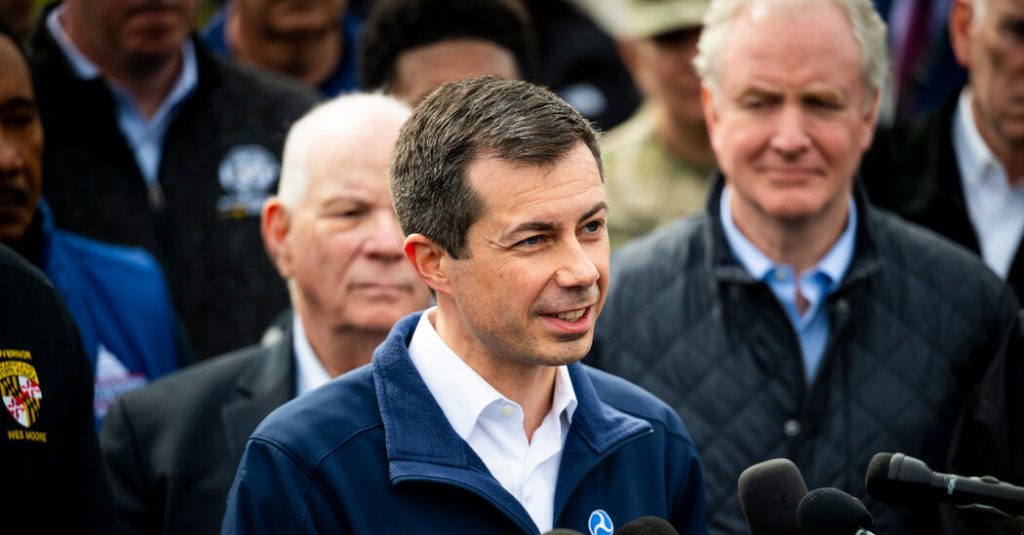Last week, the Francis Scott Key Bridge in Baltimore collapsed, prompting Transportation Secretary Pete Buttigieg and Maryland Democrats to urge Congress to authorize additional federal funding for its reconstruction. Buttigieg emphasized the importance of bipartisan support for the project, citing a similar situation in Minnesota where Congress approved $250 million for bridge reconstruction shortly after its collapse in 2007. The Department of Transportation has allocated $60 million in emergency federal funding for the bridge’s rebuilding, but experts estimate that the total cost could reach hundreds of millions of dollars.
The urgency for additional federal funding stems from concerns about the impact of a prolonged disruption to the Port of Baltimore on the U.S. economy. The port is a critical logistics hub for wheeled cargo like cars and trucks, playing a key role in the auto industry for both imports and exports. Maryland Governor Wes Moore and Baltimore Mayor Brandon Scott emphasized that the collapse of the bridge is not just a local tragedy, but a national economic catastrophe that could impede economic growth. They stressed the need for swift action to restore operations at the port and alleviate the impact on the broader economy.
President Biden announced that the federal government would cover the entire cost of rebuilding the Baltimore bridge, urging Congress to support this initiative with federal funding. However, his proposal faced opposition from Republican lawmakers, as well as some within his own party, who raised concerns about the government assuming full responsibility for reconstruction without holding other parties accountable. Representative Dan Meuser of Pennsylvania criticized Biden’s pledge as an “outrageous” and “knee-jerk spend reaction” to the bridge collapse, highlighting the contentious debate over federal funding for the project.
Engineering experts anticipate that clearing the debris blocking a vital shipping lane to the port will take place in the coming weeks. However, the full recovery of the Port of Baltimore is expected to be a long-term process, with the rebuilding of the Francis Scott Key Bridge estimated to take several years. The U.S. Army Corps of Engineers, responsible for maintaining the shipping channel in Baltimore, is covering the cost of clearing the debris from the bridge collapse. The timeline for the port’s complete restoration remains uncertain, as officials work to secure additional federal funding and expedite the reconstruction efforts.
In response to the bridge collapse, both local and federal officials have emphasized the need for a concerted effort to restore the Port of Baltimore and mitigate the economic repercussions of the incident. The bipartisan call for additional federal funding underscores the recognition of the port’s significance as a critical component of the U.S. economy, serving as a key transportation hub for various industries. As the recovery process unfolds, the collaboration between government agencies, lawmakers, and engineering experts will be essential in addressing the challenges posed by the bridge collapse and ensuring the timely reconstruction of the Francis Scott Key Bridge. Adeel Hassan contributed reporting to this account, providing insight into the ongoing efforts to rebuild the bridge and restore operations at the Port of Baltimore.


